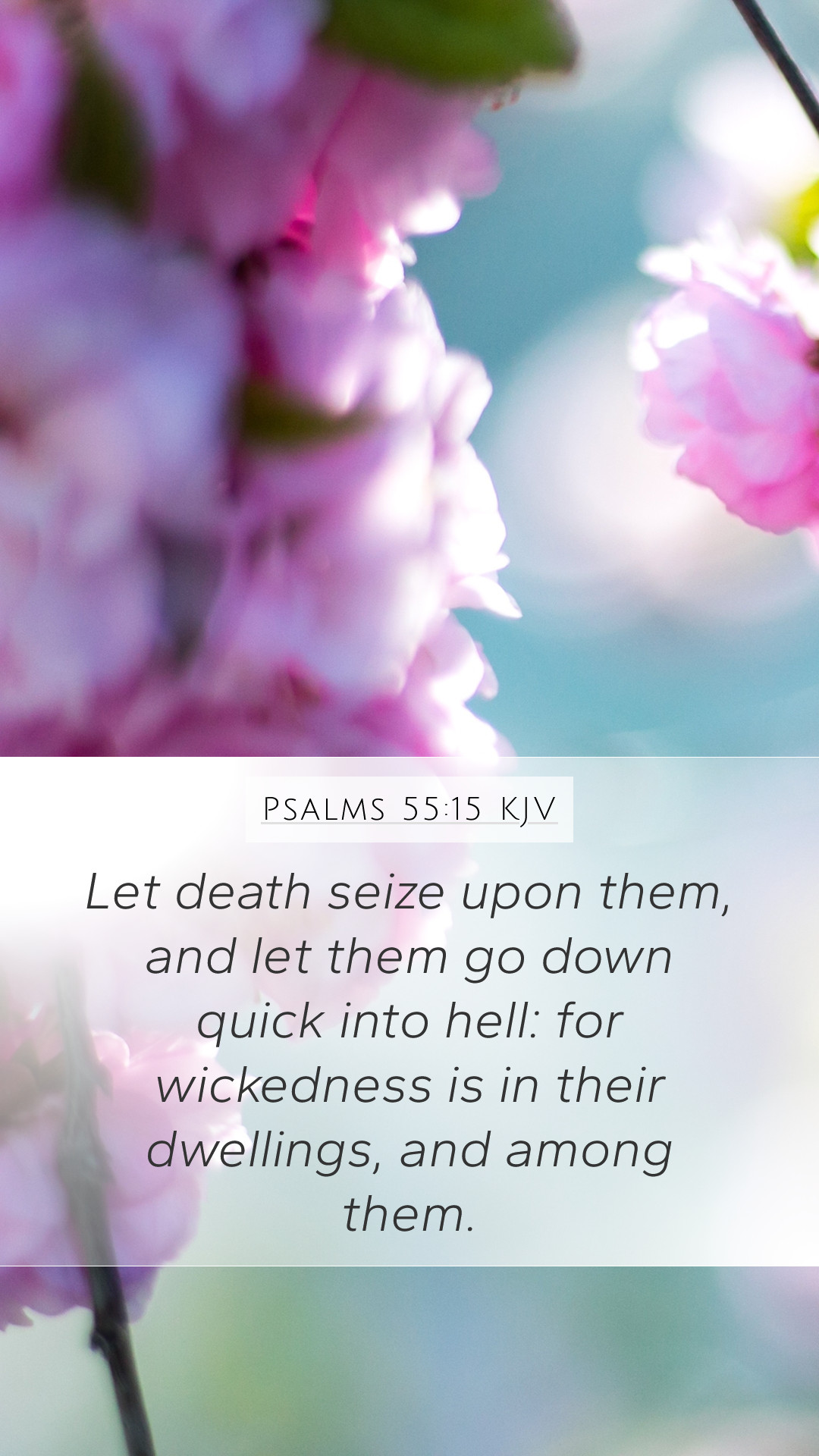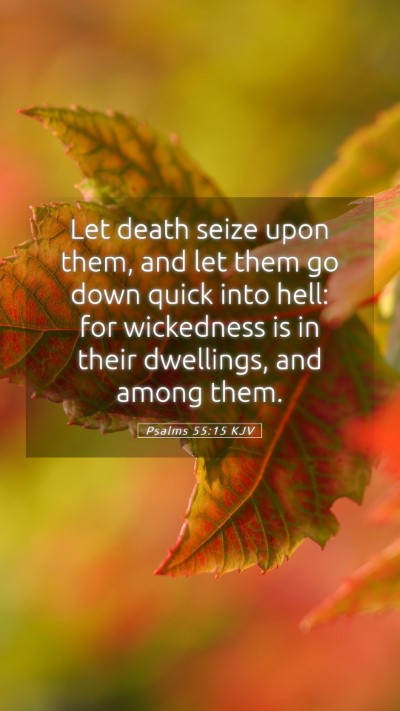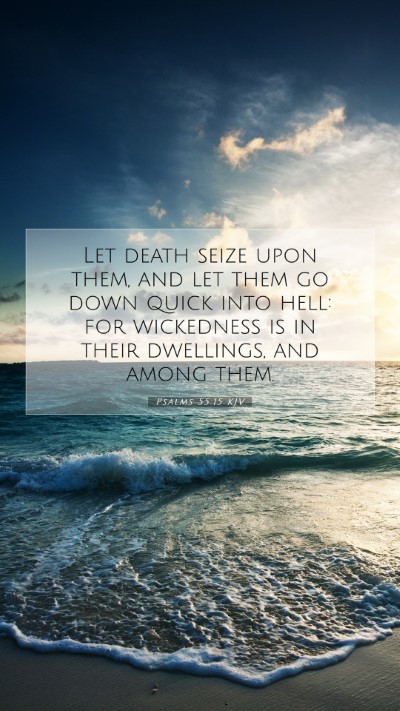Psalms 55:15 - Biblical Exegesis and Commentary
This verse, "Let death seize them; let them go down alive to Sheol, for evil is in their dwelling place and in their heart," captures the deep anguish and despair of the psalmist in the face of betrayal and wickedness. Below is a summarized interpretation based on notable public domain commentaries such as those by Matthew Henry, Albert Barnes, and Adam Clarke. This exploration aims to provide readers with a clear understanding of this verse within its biblical context.
Contextual Background
The Book of Psalms is a collection of songs and prayers that express the emotional experience of the psalmists. Psalms, especially those written by David, often reflect intense feelings of distress, longing, and supplication to God amidst challenges. Psalms 55, specifically, revolves around the theme of betrayal, likely addressing the distress caused by a close friend turning against the psalmist.
Verse Meaning Overview
Psalms 55:15 references a request for divine judgment against those who perpetrate evil, particularly friends or allies who betray the trust bestowed upon them. The verse uses strong imagery concerning their fate, invoking the concept of Sheol as a destination for the wicked.
Insights from Commentaries
- Matthew Henry's Commentary:
Henry emphasizes the sorrow and bitterness reflected in the psalm. He suggests that the psalmist's words convey deep feelings of vengeance not from a place of hatred, but rather, a response to profound hurt. The call for death to seize the wicked is a reflection of the gravity of the betrayal and the anguish it causes.
- Albert Barnes' Notes:
Barnes interprets this verse highlighting the severity of the psalmist's feelings. He points out that the expressions of desire for death can be understood as the ultimate judgement against evil doers. Barnes asserts that this raw emotion, while extreme, reflects the psalmist's longing for divine justice and recognition of vile acts against him.
- Adam Clarke's Commentary:
Clarke notes that the psalmist’s desire for the evil to experience judgment is rooted in the pain of betrayal from someone intimate. He discusses the concept of Sheol as representative of the grave and the fate of the wicked, asserting that the verse serves as a lament for the faithlessness and treachery encountered by the psalmist.
Theological Implications
This verse raises questions about the nature of justice, mercy, and the human condition when faced with betrayal. It reflects a common human response to suffering and pain, revealing the struggle between seeking divine justice and the call to forgiveness. The intense emotions exhibited in this psalm reflect a deep yearning for restoration and a desire for God to intervene against evil.
Application in Daily Life
For modern readers, Psalms 55:15 can provoke reflections on personal experiences of betrayal and loss. It challenges individuals to navigate their feelings of revenge or the desire for justice while fostering a spirit of forgiveness, as often taught in New Testament reflections on the nature of love and mercy.
Cross References
- Psalms 34:21: "Evil shall slay the wicked, and those who hate the righteous will be condemned."
- Psalms 69:28: "Let them be blotted out of the book of the living; let them not be enrolled among the righteous."
- Psalms 55:20-21: Reflects on the treachery of a close friend.
Conclusion
Psalms 55:15 stands as a poignant reminder of the emotions that accompany human relationships and betrayals, echoing the cry for justice while inviting deeper reflection on the nature of forgiveness and divine judgement. The insights gathered from public domain commentaries enhance our understanding of this scripture, revealing layers of meaning that resonate with both ancient readers and contemporary believers seeking to understand Scripture in their lives.
Utilizing Bible study groups, online Bible study resources, and various Bible study tools can further enhance one’s understanding of challenging verses like Psalms 55:15. Engaging with these resources provides deeper insights into the historical context and the theological implications found within the scriptures, guiding believers in applying God’s word to their daily lives.


